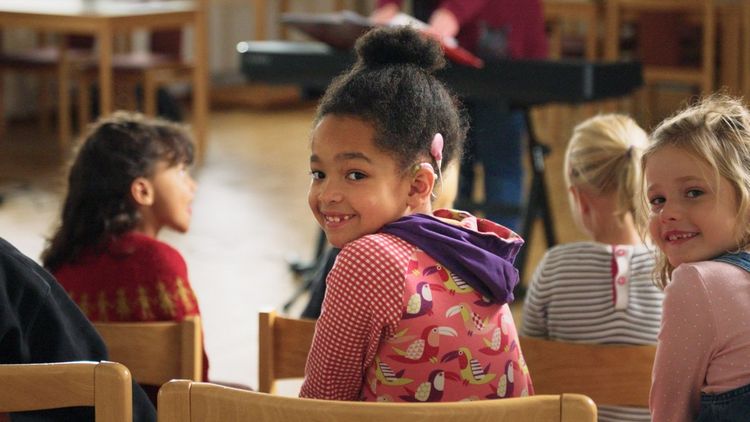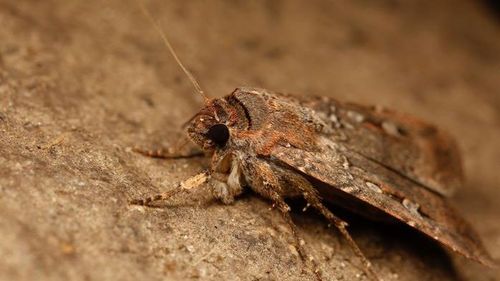In a recent study, Oldenburg researchers in the Hearing4all Cluster of Excellence found that even if children with impaired hearing receive optimal medical care they may still need targeted support with their vocabulary years later.
In an exploratory study, the scientists compared how children with and without hearing impairments tell stories – a skill considered crucial for academic success and career opportunities. Their research showed that children who are dependent on hearing aids or cochlear implants have deficits in certain aspects of storytelling. This was the first time such tests were conducted with German-speaking children.
"The results indicate that children with impaired hearing need support with their vocabulary not only in kindergarten and the first school years, but also later on," says Lara Hardebeck, a special needs education researcher with a focus on language and intellectual development who is researching language acquisition and participation of pupils with hearing loss for her doctorate. Her approach is an example of a new perspective in Oldenburg hearing research. In its next funding phase, the Cluster of Excellence Hearing4all will focus on the research area "From hearing to understanding for participation in society", in which linguistics professor Esther Ruigendijk is also involved. "The aim is to determine how hearing can influence social participation and how hearing functions in social interactions. This means means we go beyond purely technical and medical questions," she stresses. "In this area of research in particular, linking scientific perspectives with those from the humanities and social sciences is vital and enormously enriching."
For her study, Lara Hardebeck conducted tests with 28 children with normal hearing aged 9 on average, and 22 with hearing loss aged 10 on average. Among other tasks, the children were asked to recount in their own words a story in pictures about a family of birds. "From a linguistic point of view, narration means that someone describes a fictional or real event in at least two coherent utterances – usually sentences, but sometimes also individual words," explains Hardebeck.
The story about some baby birds whose nest is attacked by a cat is part of a standard procedure used by researchers to examine the macro- and microstructure of narratives. If the children can, for example, name the characters and describe the setting or central conflicts, this indicates a good macrostructure. "With the microstructure, on the other hand, we pay attention to linguistic subtleties: which words the children use, how varied their vocabulary is and how complex their sentences are," she explains.
Whereas on the macrostructure level the children performed similarly in storytelling, on the microstructure level the researchers observed noticeable differences: children with impaired hearing used a less varied vocabulary, often starting their sentences with the same words and repeating terms rather than using synonyms or pronouns.
In further tests, the researchers found that the hearing-impaired children also had a smaller passive vocabulary and found it more difficult to repeat made-up words than children with normal hearing. This indicates a limited phonological working memory – the part of the brain which stores and processes phonetic-linguistic information.
But why were there such variations in this skill known as lexical diversity, even though the children with impaired hearing had been using hearing aids or cochlear implants for many years – on average since they were 2.6 years old? "Speech development takes place at an early stage, and hearing and the associated developments in the brain begin as early as the seventh month of pregnancy," explains Lara Hardebeck – which could mean that developments missed out on in very early childhood are partly responsible for problems with storytelling later on.
Hardebeck emphasises that the study was exploratory, aimed only at gaining initial insights, which means that the results are preliminary: "The test group is too small to be representative and we didn't have enough background information on all the children to be able to rule out with certainty any other factors affecting their storytelling abilities that aren't directly related to listening." Further studies would be needed that also take account of factors such as the children's cognitive abilities, for example.
"Research like this is important for educational success, because it makes clear that children with hearing loss often require long-term language support even though they use a technical device," says Ulla Licandro, Professor of Heterogeneity and Diversity with Special Focus on Inclusive Educational Processes at the University of Oldenburg. In the special education context in particular, it becomes clear how closely language skills are linked to participation and success at school, she adds. The current research shows that many influencing factors – including cognitive abilities and social circumstances – have not yet been sufficiently considered, and that further interdisciplinary research is needed. "Studies in this area contribute to the ability to recognise support needs at an early stage and develop tailored support services," Licandro notes.




